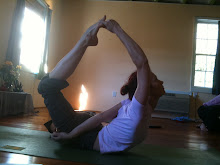Sutra 1.6-1.11 Movements
Sutra 1.6-1.11
There are basically five movements of consciousness. They are:
Sutra 1.8 Illusory or erroneous knowledge is based on non-fact and non-real.
Sutra 1.9 Verbal knowledge devoid of substance is fancy or imagination.
Sutra 1.10 Sleep is the non-deliberate absence of thought-waves or knowledge.
Sutra 1.11 Memory is the unmodified recollection of of words and experiences.
When the vrttis occur we can basically categorize them into five categories. They are correct or incorrect, we have concepts, we sleep, and we have memory. Our correct turnings have to be in contact with our incorrect knowing. They influence each other. When we are erroneous in our thoughts, we do not know we are wrong until we do. It is very interesting how correct we can think we are, and then find out later we are wrong. Following “wrongness,” we may feel ashamed, sheepish, or even stupid. Sometimes, we are just plain wrong.
But the thing about correct knowledge is that it too is growing. If it is not then we have a stagnancy. In the tantra we say that consciousness is ever-expanding. If this is true, which we only have to look at the universe to know that it is, then this would lead us to knowing that knowledge will also ever-expand. If we limit ourselves to a certain knowing, we can’t really grow our knowledge. There are things we know in our hearts and this knowing keeps growing, keeps expanding. During this expansion, we have to let certain things, thoughts and concepts go
Knowing that is not based on reality is like day-dreaming, dreaming, reverie. While it may not necessarily harm or be negative, it can be ineffectual and keep us in a whilrling tide pool of unproductive, unconscious thinking. Substance is found in the depths, and part of our yoga is to draw it out and express it.
There will be more on how sleep is related to samdhi in sutra 1.19. The only way we know that we had a good night’s rest is how we feel after it. There is more on being aware even in sleep in the Sivasutra. I am called to remember the 4 states of consciousness, also delineated in the first chapter of the Sivasutra. They are waking, dreaming, sleep and turya. Turya means “fourth” and is the state of consciousness that is poured like liquid into the other states. It is always present-as the self, but we can live unaware of the continuous-ness of consciousness.
Memory is an incredible movement of consciousness. What we remember is always shifted as we grow. It is the same story yet somehow different each time. When we look at the Yoga sutra again, it is as if we have never seen it before. Where was all this before? Remembrance of consciousness itself happens for anything to even be here, for consciousness must remember itself to create.
There are basically five movements of consciousness. They are:
- correct knowing
- errors
- concepts
- sleep
- memory
Sutra 1.8 Illusory or erroneous knowledge is based on non-fact and non-real.
Sutra 1.9 Verbal knowledge devoid of substance is fancy or imagination.
Sutra 1.10 Sleep is the non-deliberate absence of thought-waves or knowledge.
Sutra 1.11 Memory is the unmodified recollection of of words and experiences.
When the vrttis occur we can basically categorize them into five categories. They are correct or incorrect, we have concepts, we sleep, and we have memory. Our correct turnings have to be in contact with our incorrect knowing. They influence each other. When we are erroneous in our thoughts, we do not know we are wrong until we do. It is very interesting how correct we can think we are, and then find out later we are wrong. Following “wrongness,” we may feel ashamed, sheepish, or even stupid. Sometimes, we are just plain wrong.
But the thing about correct knowledge is that it too is growing. If it is not then we have a stagnancy. In the tantra we say that consciousness is ever-expanding. If this is true, which we only have to look at the universe to know that it is, then this would lead us to knowing that knowledge will also ever-expand. If we limit ourselves to a certain knowing, we can’t really grow our knowledge. There are things we know in our hearts and this knowing keeps growing, keeps expanding. During this expansion, we have to let certain things, thoughts and concepts go
Knowing that is not based on reality is like day-dreaming, dreaming, reverie. While it may not necessarily harm or be negative, it can be ineffectual and keep us in a whilrling tide pool of unproductive, unconscious thinking. Substance is found in the depths, and part of our yoga is to draw it out and express it.
There will be more on how sleep is related to samdhi in sutra 1.19. The only way we know that we had a good night’s rest is how we feel after it. There is more on being aware even in sleep in the Sivasutra. I am called to remember the 4 states of consciousness, also delineated in the first chapter of the Sivasutra. They are waking, dreaming, sleep and turya. Turya means “fourth” and is the state of consciousness that is poured like liquid into the other states. It is always present-as the self, but we can live unaware of the continuous-ness of consciousness.
Memory is an incredible movement of consciousness. What we remember is always shifted as we grow. It is the same story yet somehow different each time. When we look at the Yoga sutra again, it is as if we have never seen it before. Where was all this before? Remembrance of consciousness itself happens for anything to even be here, for consciousness must remember itself to create.
